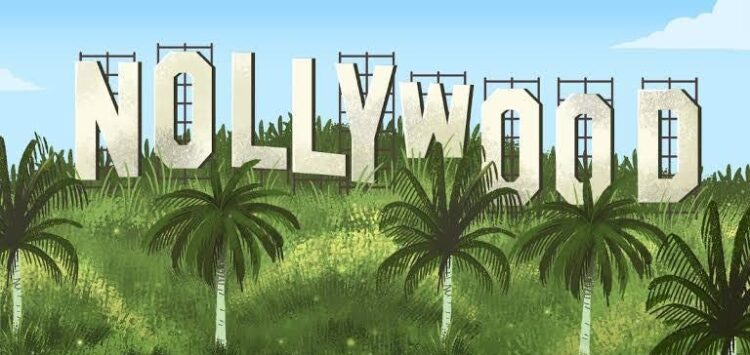The Nigerian film industry, known as Nollywood, is celebrated as one of the world’s largest and most influential film industries. While recent years have seen Nollywood’s rise to international prominence, Nigeria’s filmmaking history spans back much further than many realize.
This article explores the journey to discover the oldest movie in Nigeria, delving into the origins of the Nigeria’s film industry,
Brief History
Nigerian cinema dates back to the early 20th century when colonial powers introduced Western films to the local audience. However, it wasn’t until the post-independence era in the 1960s that the first true Nigerian films, made by Nigerians and for Nigerians, began to emerge. The country’s film industry has since undergone numerous transformations, from celluloid and videotape to digital filmmaking.
What is Considered the Oldest Movie in Nigeria?
The distinction of “the oldest movie in Nigeria” is commonly attributed to Palaver (1926), a colonial film directed by Englishman Geoffrey Barkas. However, it’s essential to clarify that Palaver was not a Nigerian production but rather a British colonial film featuring Nigerian actors. Although it is considered the oldest film shot in Nigeria, it doesn’t represent indigenous Nigerian storytelling or production.
The earliest known Nigerian-produced film, therefore, is Culture in Transition, a documentary by Ola Balogun, made in the 1970s. But for narrative feature films made by Nigerians, Kongi’s Harvest (1970), based on the play by Nobel Laureate Wole Soyinka, stands as one of the first indigenous Nigerian feature films.
1. Palaver (1926) – The first film shot in Nigeria
Palaver, also known as A Romance of Northern Nigeria, was directed by Geoffrey Barkas and remains the first recorded movie shot in Nigeria. It was a silent film with English intertitles, capturing life in colonial Northern Nigeria. Although pioneering in terms of location, Palaver portrayed a colonial viewpoint and lacks true Nigerian cultural representation.
2. Bound for Lagos (1957)
Produced by Nigerian filmmaker Ade Love, Bound for Lagos (1957) marks an important shift toward Nigerian storytelling. While it wasn’t a feature film by today’s standards, it was a locally produced film that depicted the lives, struggles, and aspirations of Nigerians. By 1957, Nigeria was on the cusp of independence, and cinema was an outlet for national pride and cultural expression. This film was one of many that inspired future Nigerian filmmakers to create films that spoke directly to Nigerian audiences.
3. Kongi’s Harvest (1970)
Kongi’s Harvest, directed by Ossie Davis and based on Wole Soyinka’s play of the same name, is regarded as one of the first full-length Nigerian feature films directed by a Nigerian. This film captures the unique storytelling approach that characterizes Nollywood today. The movie tells the story of a fictional African leader’s attempt to modernize his country while struggling with traditional beliefs.
Ola Balogun – The Father of Nigerian Cinema
Ola Balogun is widely celebrated as one of the first Nigerian filmmakers to produce and direct movies with strong cultural narratives. Films like Ajani Ogun (1976) and Amadi (1975) are significant in showcasing indigenous Nigerian stories and language.
Ajani Ogun – A story rooted in Yoruba traditions and featuring rich cultural aesthetics. Amadi – Nigeria’s first Igbo-language film, setting a precedent for Nigerian cinema’s linguistic diversity. Ola Balogun’s works inspired future generations of Nigerian filmmakers, proving that African stories could resonate globally.
Hubert Ogunde
Another foundational figure in Nigerian cinema, Hubert Ogunde, is credited with establishing the first Nigerian film theater group and producing some of the earliest films in indigenous languages. His 1963 movie Yoruba Ronu (Yoruba Think!) addressed social and political issues in Nigeria. Ogunde’s works played a vital role in laying the foundation for Nollywood, combining drama, music, and storytelling that reflected Nigerian realities.
Conclusion
While Palaver may hold the title of the oldest movie shot in Nigeria, it is Nigeria’s indigenous productions, such as Kongi’s Harvest and Yoruba Ronu, that truly laid the groundwork for the country’s cinematic legacy. From the early works of Ola Balogun and Hubert Ogunde to today’s Nollywood blockbusters, Nigerian film industry has consistently reflected the heart and soul of its people.
As the industry continues to evolve, looking back at its beginnings offers a profound understanding of how far Nigerian cinema has come and the endless possibilities that lie ahead. With continued support for local filmmakers, Nollywood is poised to remain a powerhouse of cultural expression and storytelling, inspiring audiences around the world.






































Discussion about this post